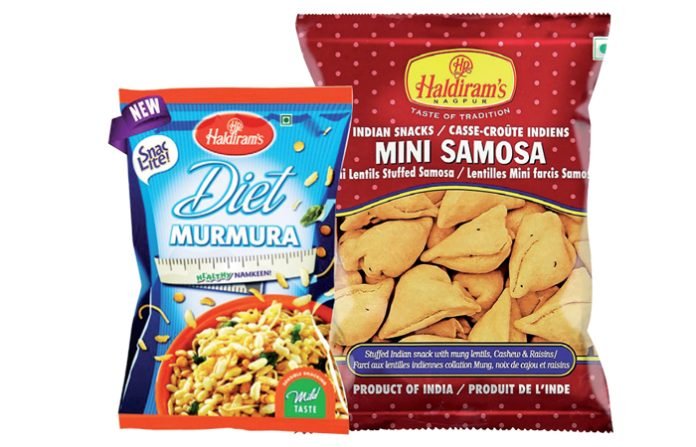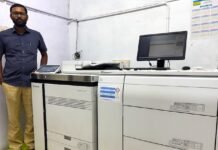As a brand, Haldiram’s has had deep penetration in the Indian market as a leading supplier of snacks and savories, both in the rural and urban areas. The brand began its journey from a small halwai (eateries) shop in Bikaner, in northwestern Rajasthan in 1937. Eighty years on, the fourth generation of the entrepreneurial Agarwals, who own the enterprise, are going from strength to strength with a dominating presence across the vast Indian market and a growing presence overseas. We at Packaging South Asia spoke to Shivraj Chaudhary, general manager at Haldiram’s plant in Gurgaon, Haryana and learnt about the company’s strategy in retaining its dominance in the national market and increasing its presence overseas.
Systems and processes designed for quality
Haldiram’s set up its first plant in Kolkata and followed it up with plants in Nagpur, Gurgaon and Bikaner. Growing demand led to expansion of capacity and further acquisitions like Akash Namkeen of Indore as well as other smaller manufacturers that merged with the growing giant. Haldiram’s manufacturing faciliaand they have invested in advanced equipment and processes for conducting online x-ray checks, metal detection and scanning of ingredients to ensure food safety. The company has also obtained ISO 22000:2005 certification and its plants are approved by FDA, USA. These processes are critical for analyzing physical, chemical and microbiological properties in ingredients.
According to Shivraj Choudhary, Haldiram’s is making serious efforts at meeting higher quality benchmarks. For instance, it uses only the best international quality machinery for processing of ingredients because of the better quality of metallurgy in these machines. Polymer flooring in the shop-floor instead of conventional tile blocks helps minimize accumulation of microbes and micro-organisms because polymer flooring stretches across the length and breadth of the shop-floor with minimum divisions unlike conventional tile blocks. Such attention to detail has contributed substantially to Haldiram’s ability to raise quality closer to its benchmark. Even the top management at Haldiram’s ensures it spends quality time at the shop floor every day to keep up-to-date with food safety and hygiene compliance by workers.
Best-in-class machinery for packaging
Haldiram’s claims not to use any harmful preservatives for its products and uses the best packaging machinery from companies like Hassia and Bosch to fill and seal its products in various types of flexible packaging. The company has over 100 product categories spread across Namkeens (traditional Indian salted snacks) in sachets, traditional Indian sweets in sealed cans and paper board boxes, salted trendy snacks like potato wafers, etc. in sachets and frozen foods comprising items from traditional Indian main course dishes like ready-to-eat dal and curries in polymer sachets sealed inside paper board boxes. For coding and marking of its products, Haldiram’s uses end-of-line packaging machines from Domino and Imaje.
The company has around 1000 form, fill and seal packaging machines in operation for handling production of around 500 tons. It is also increasing its international presence and has recently set up its first plant abroad in the UK. When asked about reducing use of polymer-based flexible packaging, especially the Namkeen and dry snack sachets, Choudhary did not commit any change in the near future but did not rule it out either. He said that the priority right now is to ensure that there is no compromise on product quality and the present packaging standards adhere to the required quality recommendations. He said that a substantial part of Haldiram’s packaging is based on paperboard anyway. The company is currently making substantial investments in packaging design, which is largely focused on quality and innovation.
Sustainability and renewable energy usage
According to Choudhary, Haldiram’s is gradually reducing its carbon footprint and has adopted several sustainable growth and development practices. Around 40% of the company’s power requirements are supplied by renewable energy sources, mainly solar power installations at the company’s plants. It remains committed to investing more in renewable energy to meet its power requirements in future. When asked about waste management systems at the plant, Choudhary said that a large food processor like Haldiram’s would always have a good amount of food waste to deal with and this has been factored by the management. Large methane digestor plants absorb all the organic waste and recycle the methane back to the plants’ burners. He said that the Gurgaon unit alone saves over a crore of rupees in energy cost by utilizing the recycled methane.


















